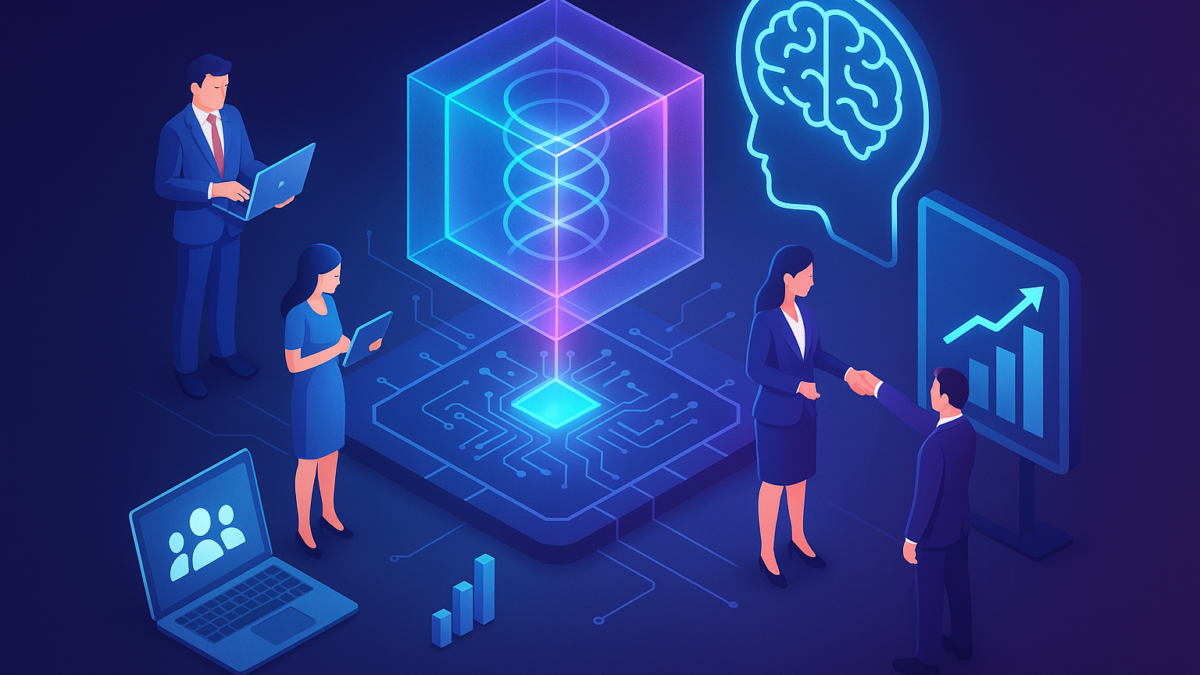Quantum AI in B2B Marketing: How Quantum Computing Will Revolutionize Lead Generation
1. Introduction: What is Quantum AI in B2B Marketing?
Quantum AI combines the computational power of quantum computing with advanced artificial intelligence to solve complex problems faster than traditional computers. In B2B marketing, this technology can process massive datasets, analyze customer behavior patterns, and optimize campaigns in real time.
By using Quantum AI in B2B Marketing, companies can anticipate client needs, identify high-value prospects, and achieve precision targeting at a scale previously impossible.
2. How Quantum Computing Enhances Predictive Analytics
Predictive analytics is at the heart of modern marketing. Quantum computing accelerates this by:
- Processing vast datasets: Traditional computers struggle with millions of variables, but quantum systems evaluate multiple possibilities simultaneously.
- Faster decision-making: Quantum algorithms reduce the time needed to generate insights from days to minutes.
- Optimizing resource allocation: Marketers can better allocate budgets, content, and ad spend for maximum ROI.
Example: A B2B SaaS company can predict which leads are most likely to convert next quarter with unprecedented accuracy.
3. Quantum AI Algorithms for Lead Scoring
Lead scoring becomes more precise with Quantum AI because it can:
- Analyze behavioral patterns, engagement signals, and firmographic data simultaneously.
- Adjust scores dynamically as new data streams in.
- Identify “hidden potential leads” that conventional AI might overlook.
This ensures that sales teams focus on the highest-value prospects, increasing conversions and shortening the sales cycle.
4. Case Study: Early Adopters in B2B Campaigns
Some pioneering B2B companies have started experimenting with Quantum AI:
- IBM and Salesforce Collaboration: Utilizing quantum algorithms to optimize email campaigns and predict customer churn.
- Startups in FinTech: Using Quantum AI to identify cross-selling opportunities in real time.
These early adopters report improved lead quality, faster insights, and better ROI compared to traditional AI systems.
5. Challenges and Limitations
While promising, Quantum AI in B2B marketing faces hurdles:
- High computational cost: Quantum hardware is expensive and still in experimental stages.
- Limited expertise: Few data scientists specialize in quantum algorithms for marketing.
- Integration difficulties: Merging quantum solutions with existing CRM and marketing stacks can be complex.
Despite these challenges, early experiments show that the benefits often outweigh the barriers.
6. Future Outlook for Quantum AI in Marketing
By 2026–2027, we can expect:
- More accessible quantum cloud computing platforms for marketers.
- AI-driven hyper-personalization at scale, powered by quantum insights.
- Real-time optimization of multi-channel campaigns, reducing waste and maximizing conversions.
Key takeaway: Businesses that invest early in Quantum AI in B2B Marketing will gain a competitive edge in lead generation and campaign efficiency.
7. Conclusion
Quantum AI represents a paradigm shift in B2B marketing. By leveraging quantum computing for predictive analytics and lead scoring, marketers can achieve unprecedented precision, speed, and ROI. While adoption is still in its infancy, the future of B2B campaigns is undeniably quantum.
Ready to turn your content into a lead-generation machine? Explore our B2B Content Syndication Services and reach decision-makers who matter most.





